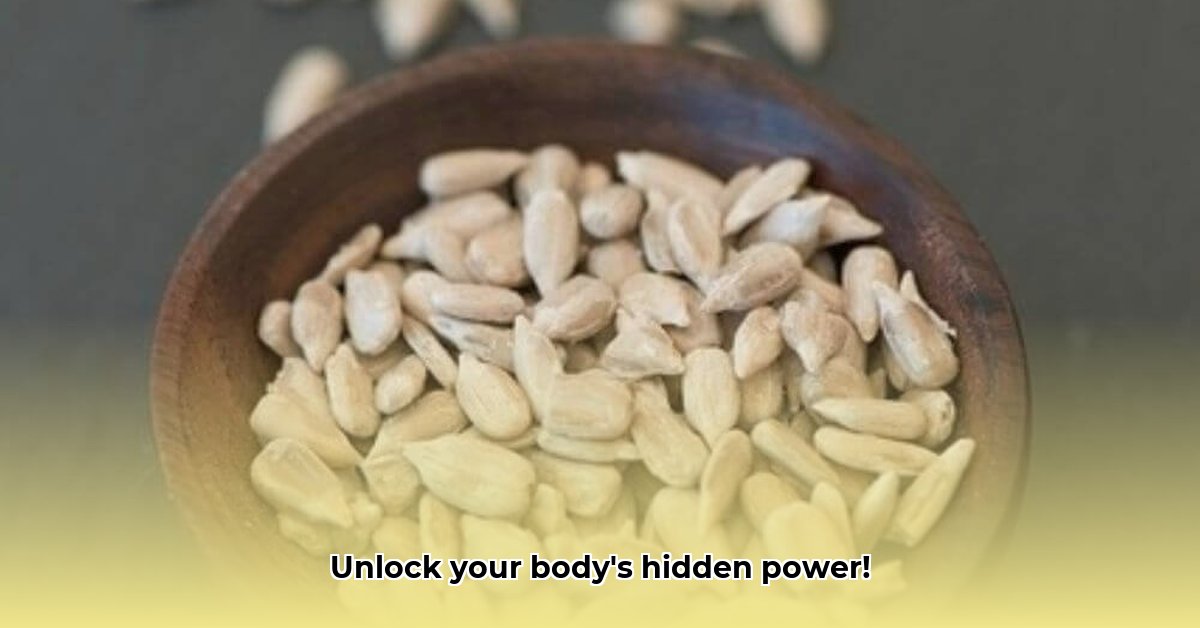
Selenium Rich Foods: Your Ticket to Better Health
Eish, selenium! It might not be a braai staple, but this trace mineral is a kragdadigheid (powerhouse) for your body. Think of it as a tiny superhero, quietly protecting your cells and keeping everything ticking over nicely. It's a crucial part of your antioxidant team, fighting off free radicals that cause cellular damage. Plus, it's vital for a healthy thyroid, that little gland that controls your metabolism. A selenium shortage leaves you feeling moeg (tired), weak, or even worse. So, how do you make sure you're getting enough of this amazing mineral? By adding some lekker (delicious) selenium-rich foods to your plate!
Aren't you curious about this essential mineral and how it impacts your health? A recent study found that adequate selenium intake is linked to improved immune function—something we all need, especially in South Africa where immune-boosting strategies are always relevant.
Understanding Selenium's Superpowers
Selenium isn't just another nutrient; it plays many key roles in keeping you healthy. Firstly, it's a powerful antioxidant, protecting your cells from damage caused by free radicals. These free radicals are like tiny vandals, causing chaos and contributing to ageing and diseases. Selenium neutralises them, like a bodyguard for your cells!
Secondly, selenium is essential for your thyroid gland. Your thyroid regulates your metabolism – how your body uses energy. Without enough selenium, your thyroid might not work efficiently, leading to problems like fatigue, weight gain, and mood swings.
Finally, selenium's involved in reproduction and immune function. Research shows a link between adequate selenium and better immune responses and fertility. It's a multitasking superhero, keeping your body in top shape.
Unlocking the Deliciousness: A Selenium-Rich Food Adventure
Now for the fun part – discovering tasty ways to boost your selenium! The amount of selenium in food depends on factors like where it was grown and how it was processed. But don't worry, we'll guide you.
Seafood Sensations: Seafood is a fantastic source. Think tuna steaks, salmon, or a seafood salad with shrimp and mussels. A few servings a week significantly boost your selenium. Be mindful of mercury levels in larger predatory fish, though. Your doctor or dietician can advise on safe limits.
Nutty Delights: Brazil nuts are selenium champions! A few can pack a punch. However, too many can lead to selenium toxicity, so moderation is key! Other nuts and seeds also contribute.
Meaty Marvels: Lean meats like chicken breast and lean beef are good sources. Choose lean cuts and grill, bake, or roast them to preserve nutrients. Portion control is important.
Grainy Goodness: Whole grains like brown rice and whole-wheat bread offer a modest dose. Choose whole over refined grains.
Other Amazing Sources: Eggs, mushrooms, and sunflower seeds are also good sources. Incorporating a variety of these foods ensures a well-rounded intake. Did you know that mushrooms, a readily available and affordable food source in South Africa, can contribute to your selenium intake?
Here's a summary:
| Food | Selenium Content (Relative) |
|---|---|
| Brazil Nuts (a few) | Very High |
| Tuna (3 ounces) | High |
| Salmon (3 ounces) | High |
| Chicken Breast (3 ounces) | Moderate |
| Brown Rice (1 cup cooked) | Low |
| Eggs (2 large) | Low to Moderate |
| Sunflower Seeds (1/4 cup) | Low to Moderate |
| Mushrooms (1 cup) | Low to Moderate |
Supercharging Your Selenium Intake: Simple Strategies
You don't need a complete diet overhaul! Here are simple tips:
Embrace Variety: Don't rely on just one source. Vary your selenium-rich foods for a balanced intake.
Plan Your Meals: Plan your meals, including selenium-rich choices. Integrate them into your existing meals.
Smart Cooking Methods: Baking, roasting, and grilling retain more selenium than boiling.
Check Food Labels: Some labels indicate selenium content.
Listen to Your Body: If you experience symptoms like fatigue, consult your doctor.
Important Considerations:
Selenium Bioavailability: How much your body absorbs varies depending on food type, other nutrients, and health.
The Goldilocks Principle: Both deficiency and toxicity are concerns. Severe deficiency is rare in developed countries, but toxicity can occur with excessive supplement use or selenium-rich food consumption.
Supplements: Consult your doctor before taking supplements. They are not a replacement for a balanced diet.
By making small changes to your diet and choosing wisely from the delicious variety, you can significantly improve your health and wellbeing. Enjoy the journey to a healthier you!